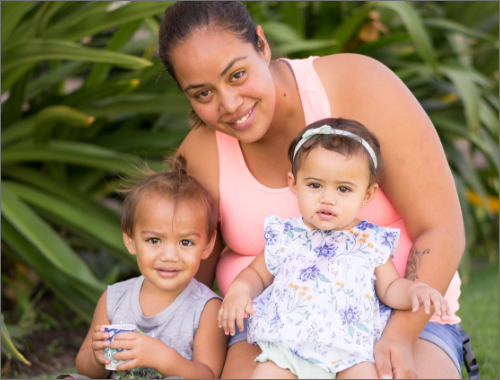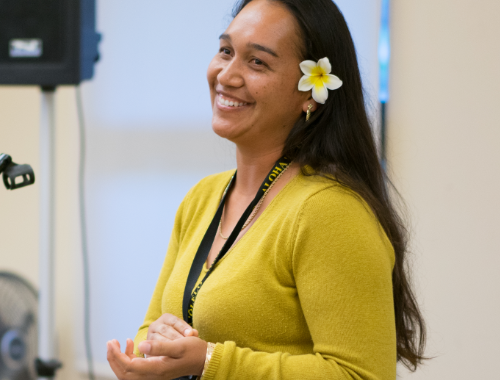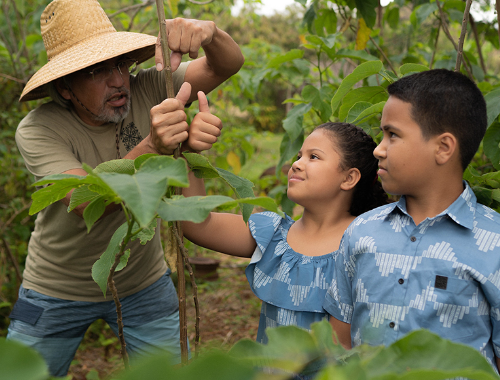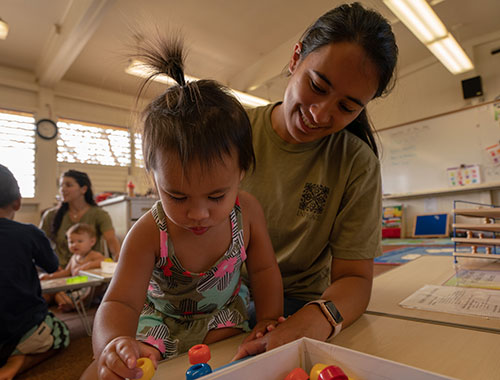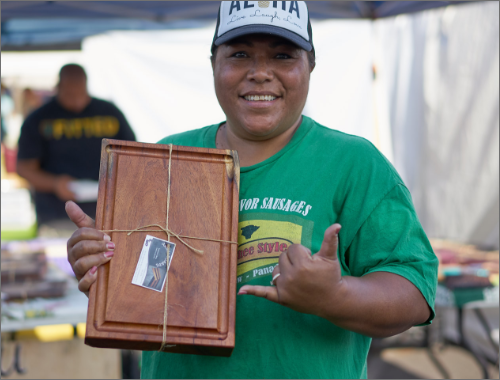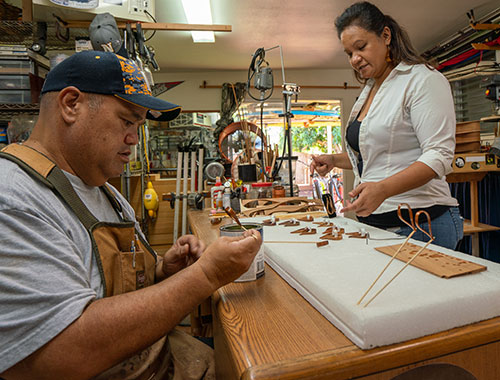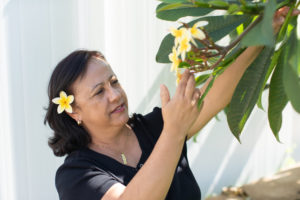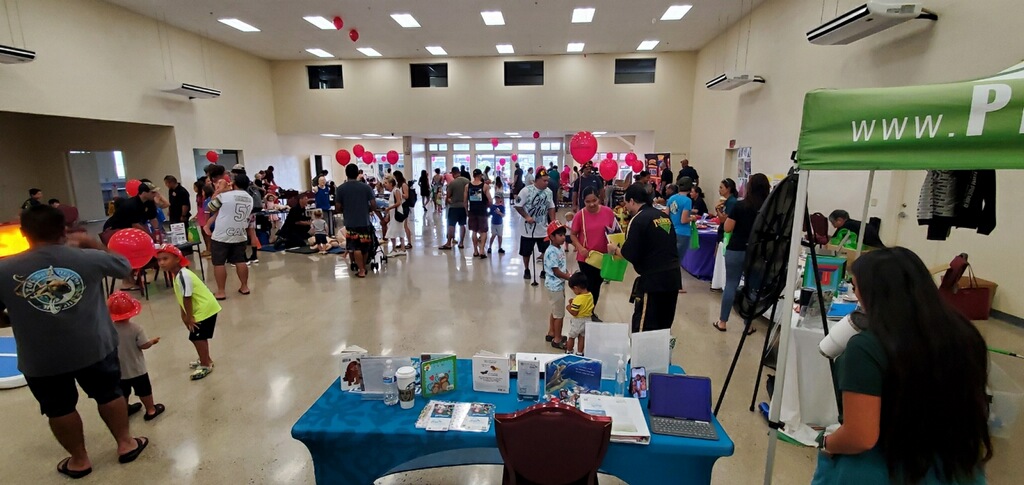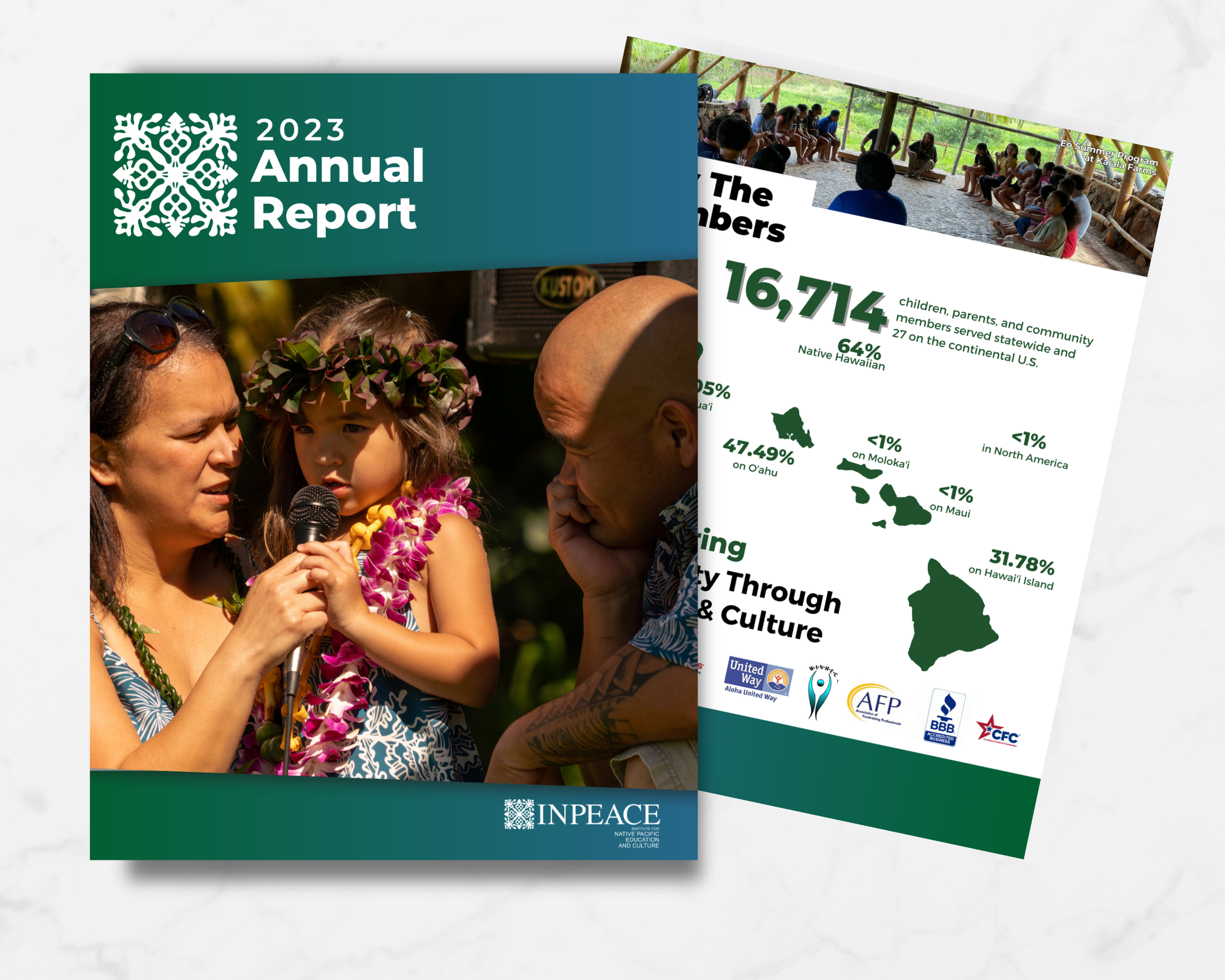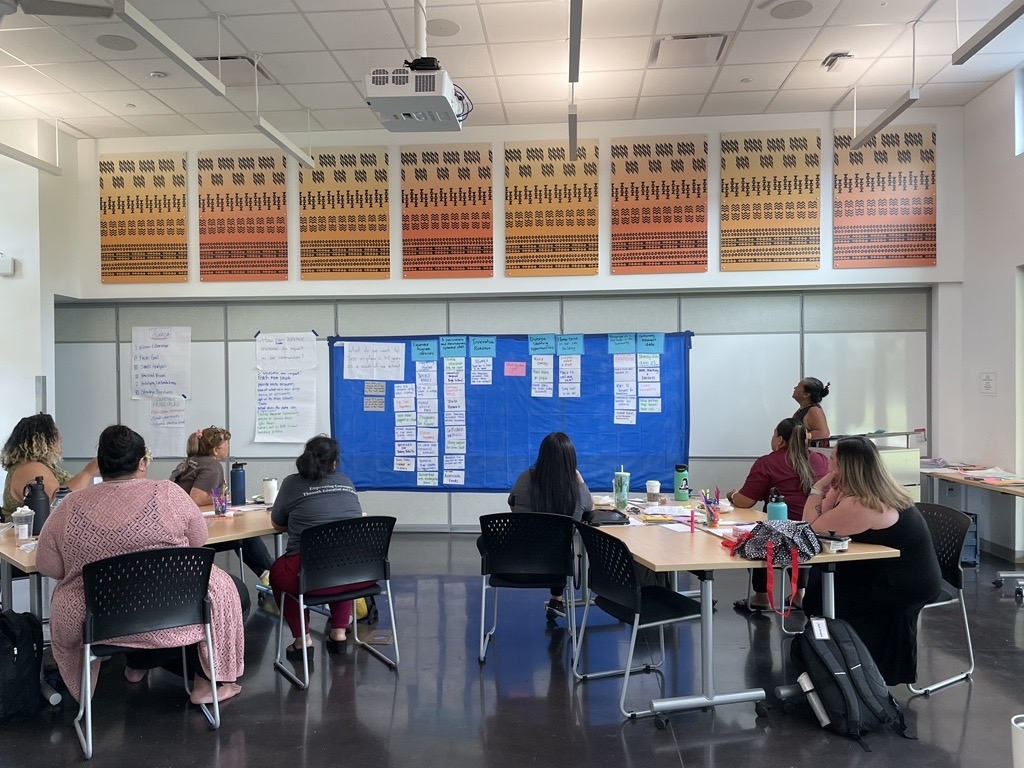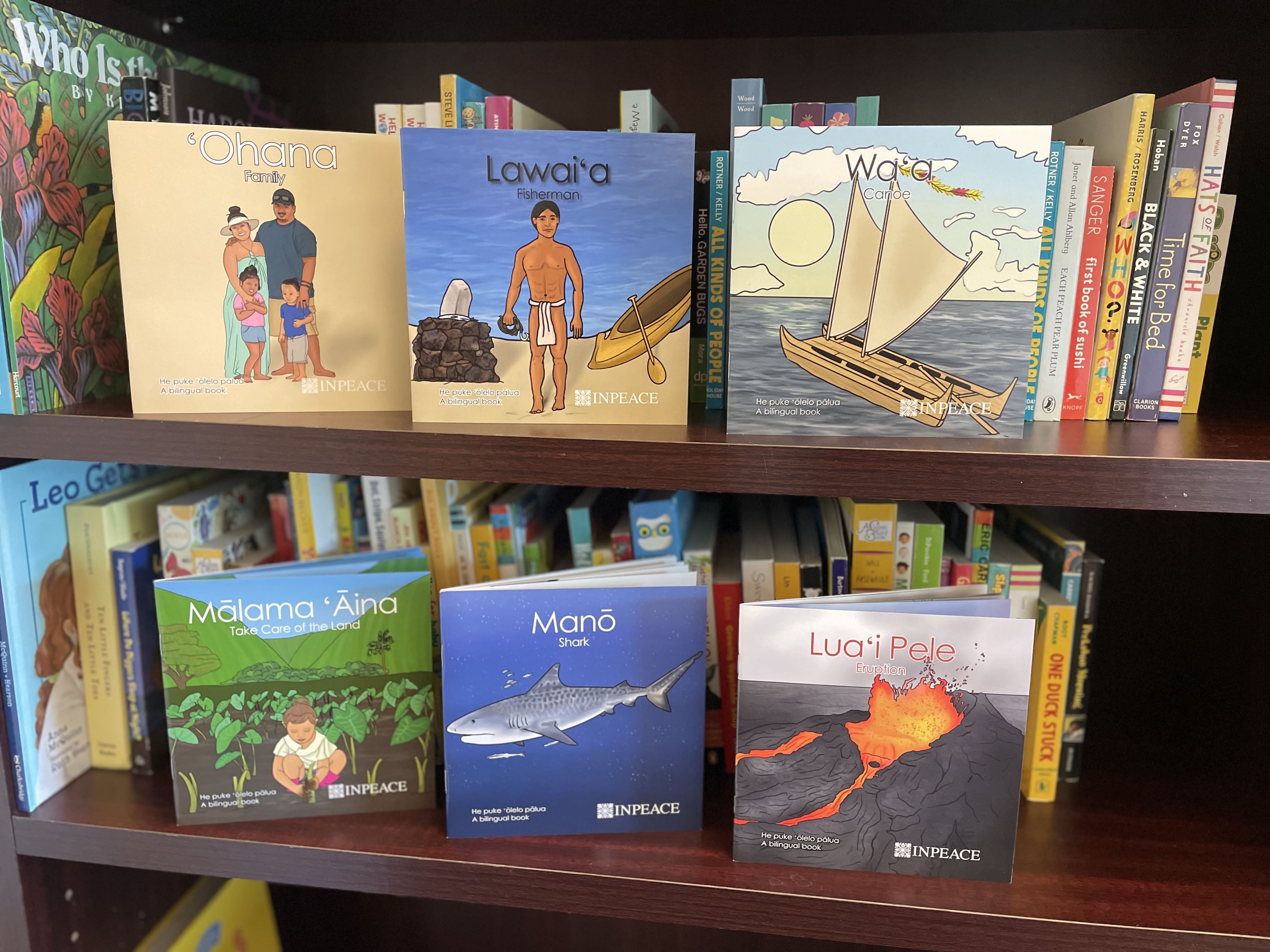Nalani Galariada grew up in Nanakuli on Hakimo Road. Back then, life was all about riding bike, roller skating (on 4-wheels), playing in the quarry (now Sea Country), marbles, skyheenee (sky inning), and chase master with her sister and neighborhood friends. She remembers a different kind of childhood, one not concerned with things like crime, drugs, and human trafficking.
It wasn’t long before Nalani faced the type of challenge that catalyzes maturity. As a young mom, when her 15-month old son was diagnosed with developmental delays and autism, Nalani immediately knew that she needed to be his advocate. Nalani felt that the Department of Education system would not be able to adequately support her son and meet his needs, so at 22, she attended her first IEP (Individualized Educational Plan) meeting. She committed to being her son’s strongest advocate because she knew him, his needs and his overall development better than anyone else.
This experience fueled Nalani’s passion to help educate parents on the importance of being involved and active in advocating for their child’s education and development. She joined the INPEACE ‘ohana in 2011 as the Program Director of our home visiting program, known today as Hi‘ilei. Nalani has consistently guided her staff through numerous crises and traumatic situations faced by participant families over the years, and in October of 2017, she led her team to attain the Parent as Teachers National Blue Ribbon status.
In 2021, Nalani participated in the Trauma Informed Care training and the Brazelton Touch Points’ Indigenous Early Learning Cohort trainings. Despite her years of experience and professional development, Nalani was thrilled by her continued growth and newly gained knowledge about brain development in young children. She felt that the trainings provided her with more tools to use when advocating and working with families at INPEACE and is working to secure new training opportunities for her staff to enhance and deepen their skills and capacities for guiding parents in supporting their child’s growth and advocating for the child’s future.


